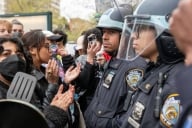You have /5 articles left.
Sign up for a free account or log in.
As the calendar ticks over to April, and students and faculty are returning from Spring break, my mind has been ever focused on summer. Through the snowstorms and flu season and bitter cold of this past winter, I was thinking of heat protocol, weekly barbecues, sunscreen giveaways, ice cream socials, and which classrooms on campus have air conditioning. Whenever I mention that I work for Summer Session, the response is always the same: What do you do the rest of the year?
Before I came to work here, I had the same question, but now I know that it takes a full year or more to pull off a great summer program, but the summer cycle is different from the rest of the campus.
While most academics use the summer to take vacations or catch up on research, the summer is our busiest time. It is a vacation blackout time in our office. We have students, classrooms, faculty, registration, and residential life to manage, and all of the drama that comes with each of those things. And because many of the services that are typically available during the academic year are not available in the summer, we have to provide those, too. The Health Center treats summer students differently, we need to outsource health insurance, and the dining halls are run on a skeleton crew. The facilities staff tends to take vacations, and the tutoring center is closed. We cover all of those bases.
In mid-August, when Summer Session ends, we debrief. We send out surveys, and compile and code the information. We make sure that the grades are in, and certificates and transcripts are complete. We take stock of what we can improve for the next summer. Do we need to hire a third manager for the snack bar, or were two enough? Is our curfew process for checking in minors at night working, or can we improve it? Did the students like the Mets game, or would a Yankees game be a more popular choice? If we offer hybrid courses, would we fill them? How can we improve our online application?
When the rest of the campus is busy in the fall with the start of a new academic year, we relax. We are all exhausted and head off for the longest vacations we can take. When we straggle back, the planning begins. We look at our mission and that of the University, and align our programs to it. The programming for the next summer- the courses, the faculty, the tuition and fees, the available dormitories and dining halls - must be in place before the winter break: we make sure that the websites are updated, and the marketing plan is finalized, with new programs, courses and audiences in mind. We need to update the application form, and streamline our systems, and invent new ones for new tasks.
In January, the application opens, the marketing comes out, and the admissions cycle begins. We review applications, process I-20’s for immigration documents, and communicate with students, prospects and parents through email, phone calls, social media and live chats on all aspects of the application process: required documents, student visas, financial aid, course choices, health concerns and allaying fears. The details of programs and courses need to be finalized, and we need to hire and train the residential life staff that we recruit, train and manage, separate from the academic year residential staff.
At the end of May, they arrive. We greet students from over 40 different countries, we make them feel at home, and we teach them. We all hope for a great summer.
Meg Palladino is the Interim Director of Yale Summer Session and the Director of International Summer Programs at Yale University.








